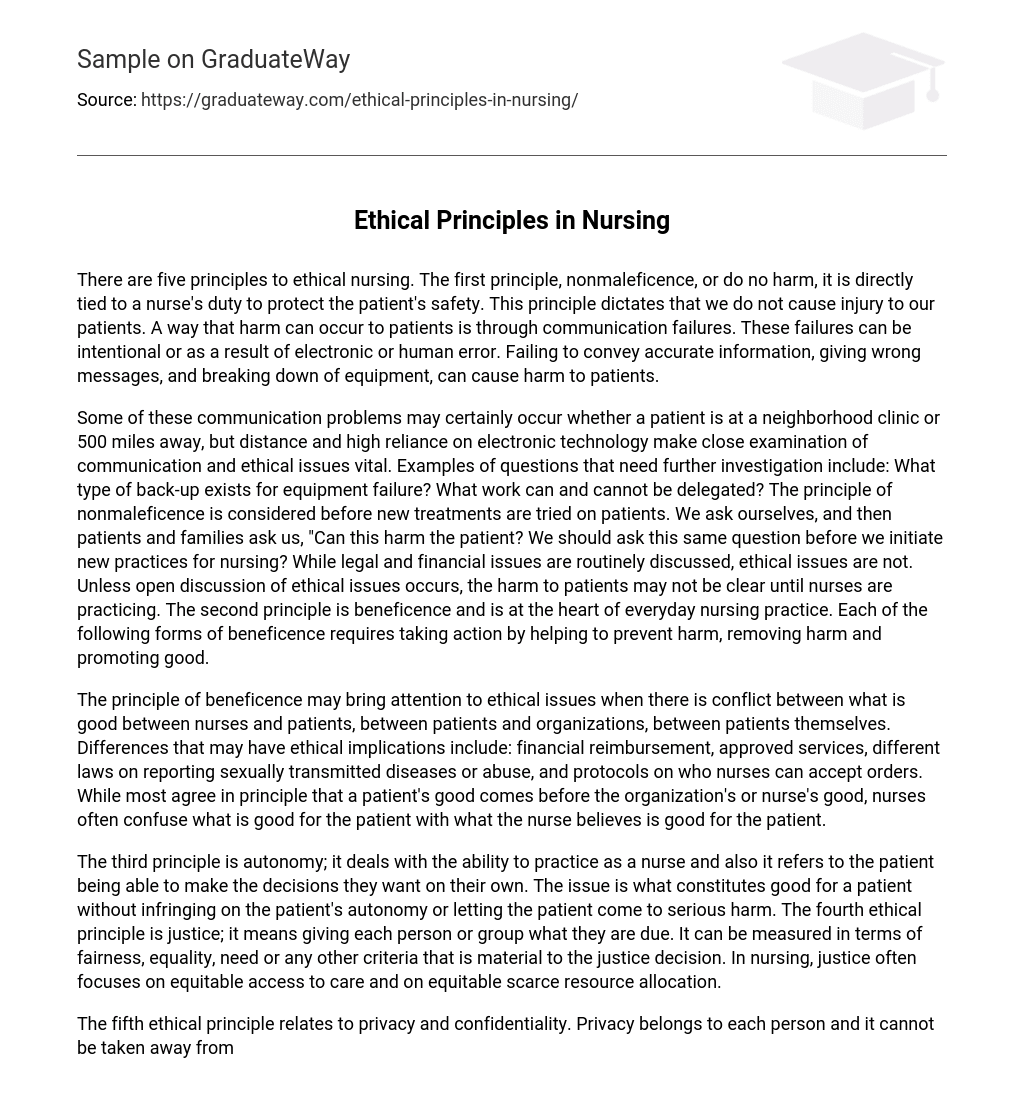The ethical principles of nursing, which emphasize the responsibility of nurses to ensure patient safety, include nonmaleficence or do no harm. Harm can be caused to patients due to communication failures, whether intentional or resulting from errors in technology or humans. These failures may involve inaccurate information conveyance, provision of incorrect messages, and equipment malfunction.
The significance of communication and ethical issues is amplified when patients are located at a distance and electronic technology is heavily relied upon. Regardless of whether a patient is at a nearby clinic or miles away, certain communication problems may arise. It is crucial to thoroughly investigate these issues. Specific questions that need further examination include: What measures are in place for equipment failure? What tasks can and cannot be delegated? Before new treatments are administered to patients, the principle of nonmaleficence is prioritized. We consider the potential harm to the patient, and this same concern should be extended to new nursing practices. While legal and financial matters are commonly addressed, ethical dilemmas often go unmentioned. The harm to patients may not become apparent until nurses start implementing these practices if ethical issues are not openly discussed. The second principle, beneficence, lies at the core of everyday nursing practice. Various forms of beneficence require action, such as preventing harm, removing harm, and promoting well-being.
The principle of beneficence poses ethical challenges when nurses find themselves at odds with patients, patients face conflicts with organizations, or patients disagree amongst themselves. These ethical dilemmas can emerge due to disparities in financial reimbursement, approved services, reporting discrepancies regarding sexually transmitted diseases or abuse cases, and the protocols dictating which orders nurses may accept. Despite a shared understanding regarding the significance of prioritizing patient well-being, nurses sometimes blend their own personal beliefs about what is best for the patient with actions that genuinely benefit them.
The third principle, autonomy, pertains to both the nurse’s practice and the patient’s capacity to make independent choices. The crucial aspect is striking a balance between prioritizing the patient’s well-being while honoring their autonomy and preventing any harm. The fourth ethical principle, justice, entails providing individuals or groups with what they deserve. This determination can be based on fairness, equality, necessity, or other applicable factors. In nursing, justice frequently centers around ensuring equitable access to healthcare and just allocation of scarce resources.
Privacy and confidentiality are the central concerns of the fifth ethical principle. It asserts that privacy is a fundamental right that should not be violated unless an individual willingly shares it. Additionally, confidentiality ensures that any shared information remains safeguarded and utilized solely for its intended purposes. Healthcare providers have a responsibility to uphold patient confidentiality by only disclosing private information to those who require it. As the number of patients continues to grow, there is also an increasing demand for access to this information from healthcare providers, administrators, regulatory agencies, and financial decision-makers.
The combination of telenursing and the expansion of nursing practices across state borders can result in an ethical predicament, as emphasized by media reports on various breaches of confidentiality. These incidents have led patients, particularly those with conditions like HIV or AIDS, genetic disorders, or mental illnesses, to be hesitant about sharing information with healthcare professionals. As a result, patients are opting not to reveal certain details in order to safeguard their privacy, even if it has adverse consequences for their health.
When evaluating ethical practices in nursing, it is crucial for nurses to consider five key principles: nonmaleficence, beneficence, autonomy, justice, and privacy/confidentiality. Nonmaleficence and beneficence are related as they both involve acting ethically and avoiding harm. Autonomy and justice are closely connected when a patient makes a medical decision, regardless of the outcome. Privacy and confidentiality are terms that are often used interchangeably and share a close association.





